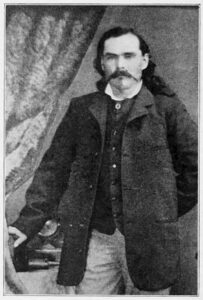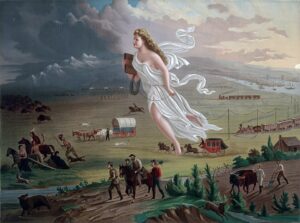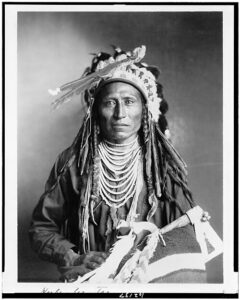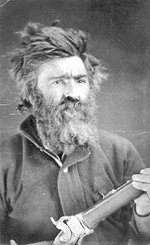
John Jeremiah "Liver Eatin'" Johnson
The name Jeremiah Johnson evokes images of a rugged, solitary mountain man braving the wilds of the American West. Popularized by the 1972 film starring Robert Redford, Jeremiah Johnson’s life story has become the stuff of legend. However, the real Jeremiah Johnson was even more extraordinary than the myths suggest, particularly regarding his fierce conflicts with the Crow Indians.
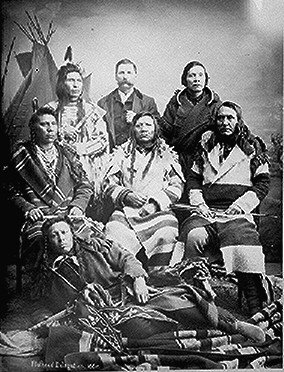
Who Was Jeremiah Johnson?
Jeremiah Johnson was born John Garrison Johnston around 1824 in Little York, New Jersey. He was the son of Isaac Johnston, a farmer, and Eliza Garrison Johnston. Little is known about his childhood, but it is believed that Johnston was raised in a hardworking family on the outskirts of New Jersey, where he learned self-reliance from an early age. His father, Isaac, was a strict but capable farmer who passed on the values of independence and resilience to his son. His mother, Eliza, played a significant role in his upbringing, instilling in him the determination that would later define his life in the wilderness.
Young John grew up in an environment that emphasized manual labor, as the family relied on farming to sustain themselves. However, Johnston’s future would eventually take a dramatically different path. Around the age of 17, he left New Jersey and headed west. It is said that he briefly enlisted in the U.S. Navy during the Mexican-American War. However, after striking a superior officer, Johnston deserted and vanished into the American frontier, marking the beginning of his transformation into the Jeremiah Johnson known to history.
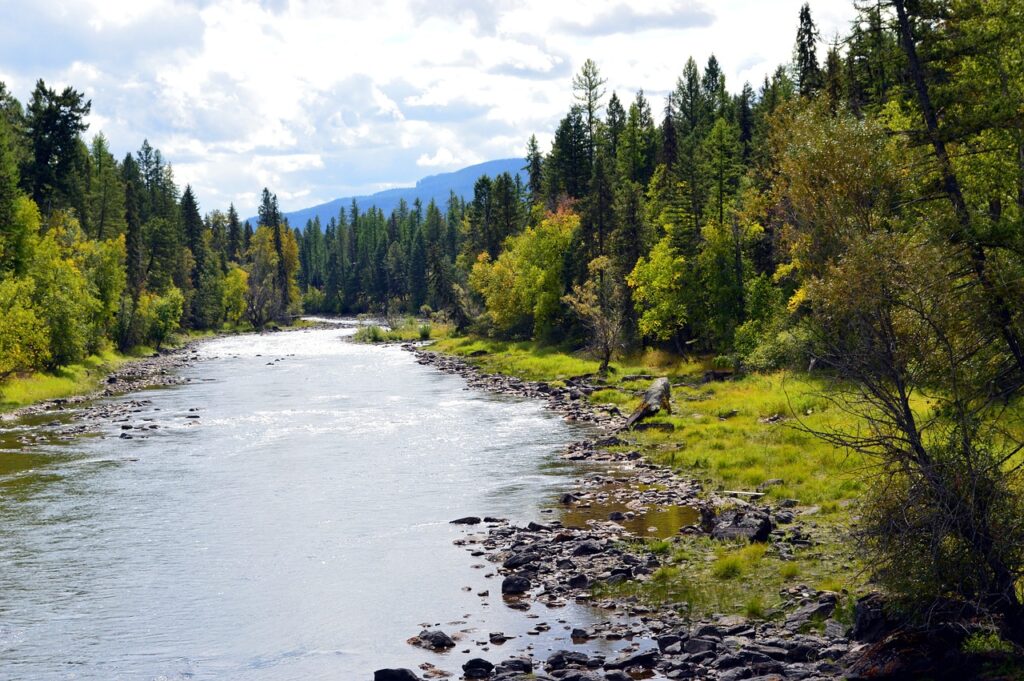
The Conflict with the Crow
Johnson’s feud with the Crow Indians is one of the most infamous chapters in his life. The conflict between Johnson and the Crow is said to have been sparked by a deeply personal tragedy. According to accounts, a band of Crow warriors killed Johnson’s Flathead Indian wife while he was away. When Johnson returned to find his wife murdered, he vowed revenge—a vendetta that would last for over a decade.
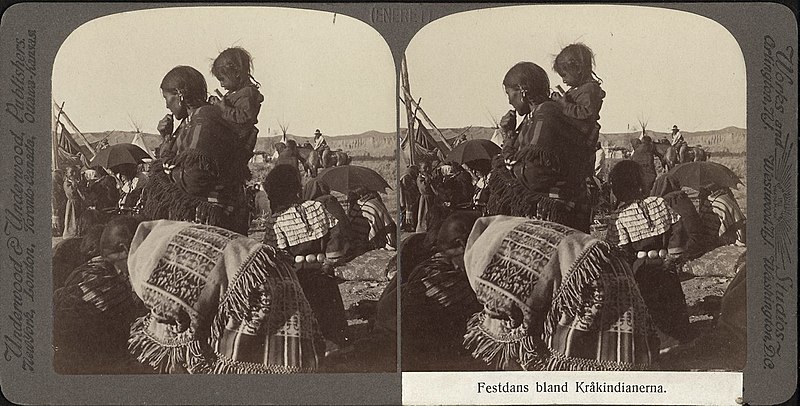
Johnson’s quest for vengeance involved hunting down and killing numerous Crow warriors. It is said that with each Crow he killed, he would cut out and eat their liver. This gruesome ritual earned him the nickname “Liver-Eating Johnston.” While the actual number of Crow warriors he killed is a subject of speculation, the accounts suggest that Johnson became a one-man scourge for the Crow nation.
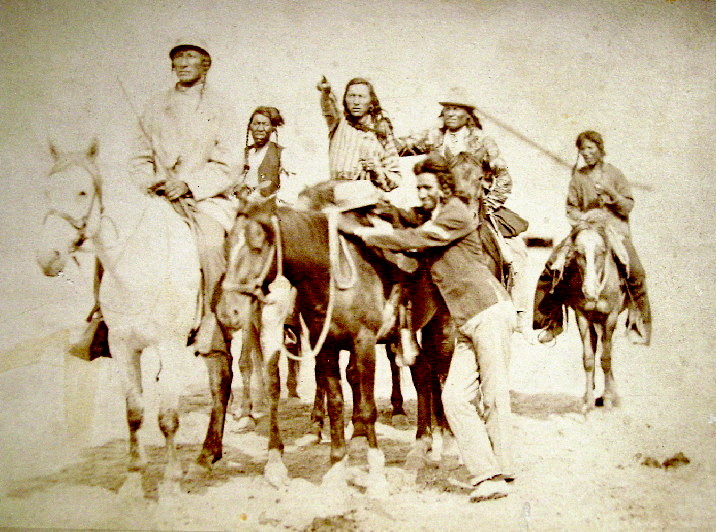
A Legendary Encounter: The Blackfoot Ambush
One of the most famous stories about Johnson’s fighting prowess involves a dangerous encounter with the Blackfoot tribe. While not part of his feud with the Crow, this fight highlights Johnson’s near-superhuman strength and cunning.
According to the story, Johnson was captured by a band of Blackfoot warriors who intended to sell him to the Crow. Bound in leather straps, Johnson faced certain death. However, during the night, he managed to chew through the straps binding him. Once free, he overpowered the Blackfoot guarding him, killing him with his own knife. Johnson then fled into the wilderness. While escaping, he survived off the land for several days, and even in the midst of his flight, he killed and scalped a few of the Blackfoot who pursued him.
This daring escape not only saved Johnson’s life but added to his already fearsome reputation as a man impossible to kill.
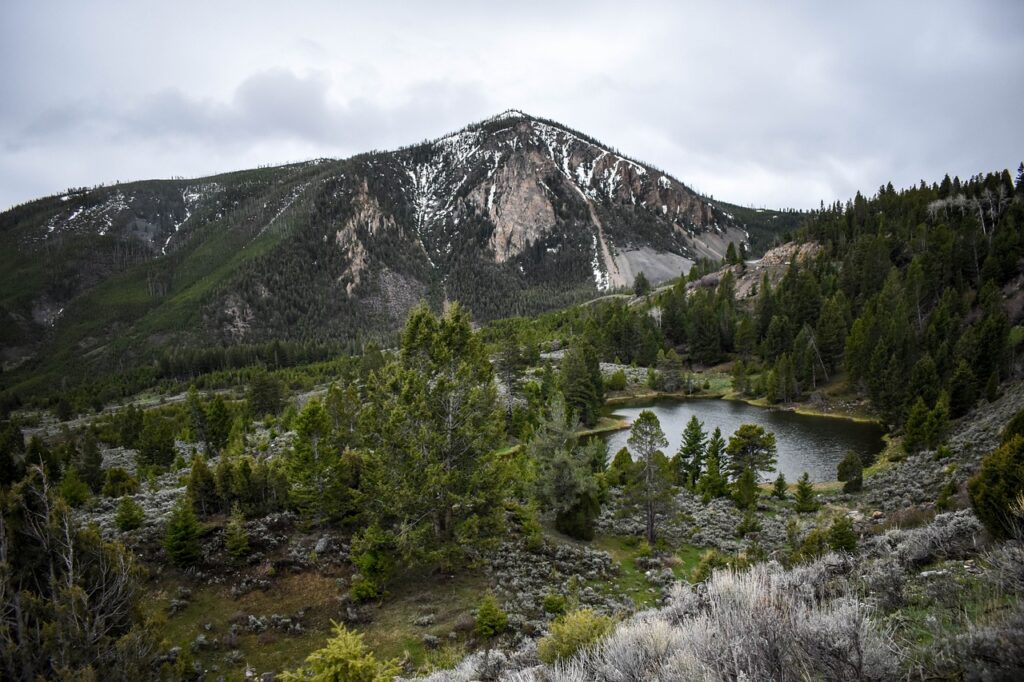
The Bear Hunter and the Mountain Man
Apart from his bloody vendetta against the Crow, Johnson led a typical mountain man’s life in the harsh, unforgiving wilderness. He was known as an expert hunter, tracker, and trapper. His skills made him a valuable asset for frontier settlements and other mountain men. He was also a prolific bear hunter, using his formidable strength and cunning to take down grizzly bears that threatened his camps.
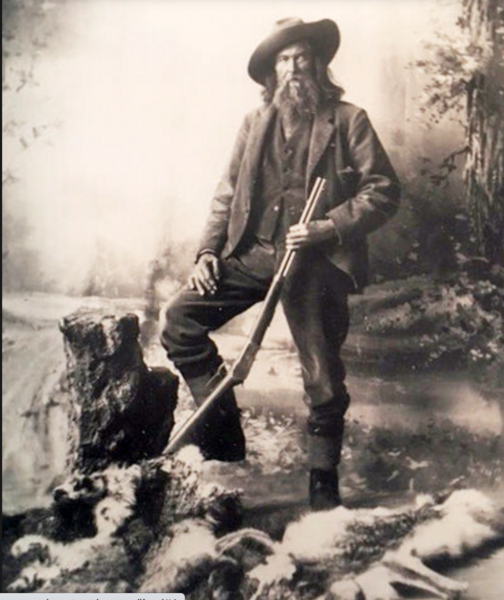
Like many of his contemporaries, Johnson’s life was characterized by an extreme form of individualism. He moved from one adventure to the next, always on the edge of survival, living off the land. His rough demeanor and towering stature—reportedly over six feet tall and weighing more than 250 pounds—made him a legend even in his own time.
Fiction vs. Reality
While the movie Jeremiah Johnson introduced a wider audience to his story, the film took several creative liberties with the actual events of his life. The movie portrays Johnson as a peaceful man who only resorts to violence when provoked. The historical Johnson was far more complex, often seeking out conflict rather than avoiding it.
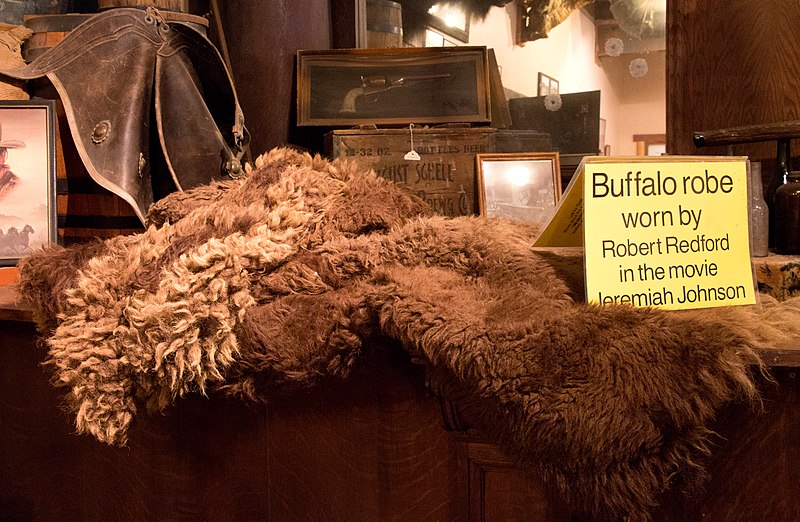
Moreover, the film minimized the impact of Johnson’s vendetta against the Crow, turning his personal war into more of a subplot. The true Jeremiah Johnson, however, lived in constant conflict with various Native American tribes. His vendetta against the Crow was not an isolated incident but rather part of a larger narrative of survival in the wild, where he had to protect himself from both Native American attacks and the dangers posed by nature.
Johnson’s Later Years and Legacy
After more than a decade in the mountains, Johnson eventually settled into a more peaceful life. He worked as a lawman in the town of Red Lodge, Montana, and later as a constable in Coulson. He continued to live in the West until his death in 1900, though by that time, the old frontier was fading into history.
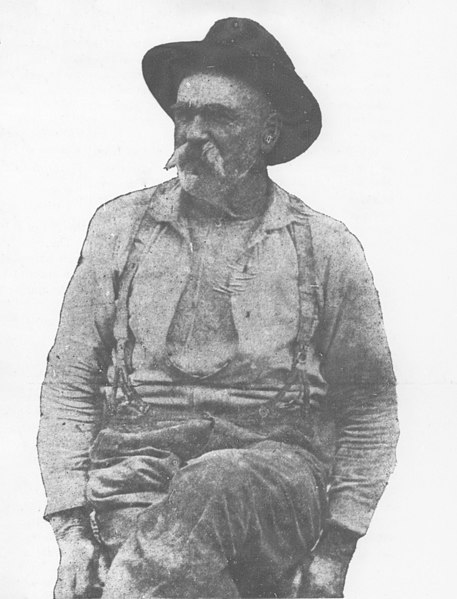
Jeremiah Johnson remains a symbol of the rugged individualism and ferocity that characterized the American West. His battles with the Crow Indians, though controversial and brutal, are part of a larger narrative about the hardships of life on the frontier. Johnson’s story is more than just a tale of revenge—it is a testament to the endurance and spirit required to survive in one of the most hostile environments in American history.
Sources
– “John Liver-Eating Johnston: Crow Killer and American Frontiersman.” Legends of America. https://www.legendsofamerica.com/mountainmen-johnston/
– Walker, David. Crow Killer: The Saga of Liver-Eating Johnson. https://www.goodreads.com/book/show/638373.Crow_Killer
– Leavitt, John. “The Real Jeremiah Johnson: Mountain Man and Frontiersman.” Montana Pioneer. https://www.montanapioneer.com/real-jeremiah-johnson/
– Jeremiah Johnson: The Man and the Legend. https://www.historynet.com/jeremiah-johnson
– Bowen, R. L. “The Real Story of Jeremiah Johnson.” Montana History Journal. https://www.montanahistoryjournal.org/jeremiahjohnson
– Dolan, Sean. Jeremiah Johnson: The Life and Legacy of John Johnston. https://www.amazon.com/Jeremiah-Johnson-Legacy-John-Johnston/dp/0878424078
